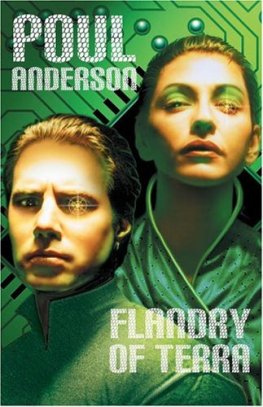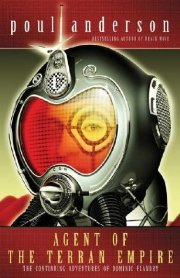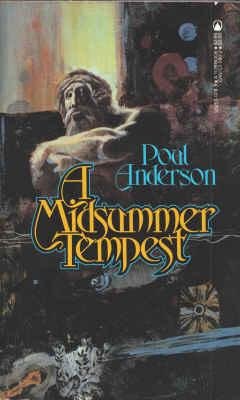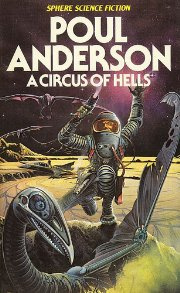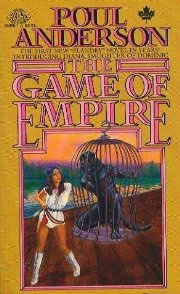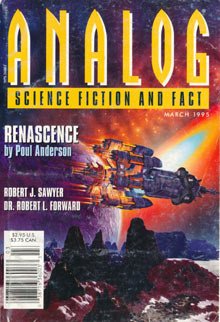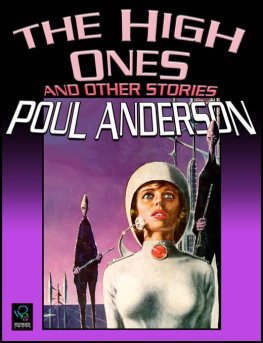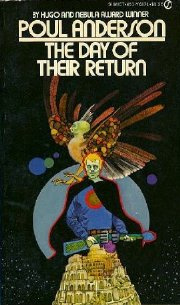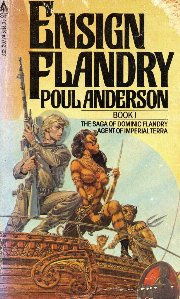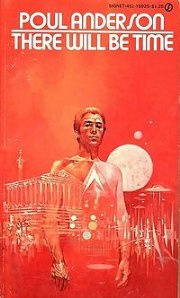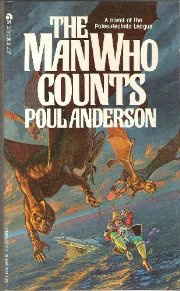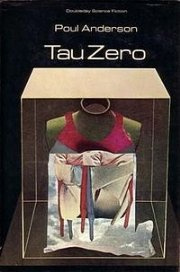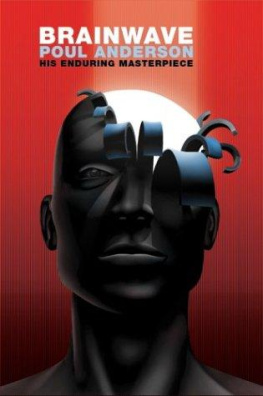Poul Anderson - Flandry of Terra
Here you can read online Poul Anderson - Flandry of Terra full text of the book (entire story) in english for free. Download pdf and epub, get meaning, cover and reviews about this ebook. year: 2007, publisher: iBooks, genre: Science fiction. Description of the work, (preface) as well as reviews are available. Best literature library LitArk.com created for fans of good reading and offers a wide selection of genres:
Romance novel
Science fiction
Adventure
Detective
Science
History
Home and family
Prose
Art
Politics
Computer
Non-fiction
Religion
Business
Children
Humor
Choose a favorite category and find really read worthwhile books. Enjoy immersion in the world of imagination, feel the emotions of the characters or learn something new for yourself, make an fascinating discovery.
- Book:Flandry of Terra
- Author:
- Publisher:iBooks
- Genre:
- Year:2007
- ISBN:9781596873490
- Rating:4 / 5
- Favourites:Add to favourites
- Your mark:
- 80
- 1
- 2
- 3
- 4
- 5
Flandry of Terra: summary, description and annotation
We offer to read an annotation, description, summary or preface (depends on what the author of the book "Flandry of Terra" wrote himself). If you haven't found the necessary information about the book — write in the comments, we will try to find it.
Flandry of Terra — read online for free the complete book (whole text) full work
Below is the text of the book, divided by pages. System saving the place of the last page read, allows you to conveniently read the book "Flandry of Terra" online for free, without having to search again every time where you left off. Put a bookmark, and you can go to the page where you finished reading at any time.
Font size:
Interval:
Bookmark:
Poul Anderson
FLANDRY OF TERRA
The Game of Glory
I
A murdered man on a winter planet gave Flandry his first clue. Until then, he had only known that a monster fled Conjumar in a poisoned wreck of a spaceship, which might have gone twenty light-years before killing its pilot but could surely never have crossed the Spican marches to refuge.
And the trouble was, even for the Terran Empire, which contained an estimated four million stars, a sphere twenty light-years across held a devils number of suns.
Flandry went through the motions. He sent such few agents as could be spared from other jobs, for they were desperately under-manned in the frontier provinces, to make inquiries on the more likely planets within that range. Of course they drew blanks. Probability was stacked against them. Even if they actually visited whatever world the fugitive had landed on, he would be lying low for a while.
Flandry swore, recalled his men to more urgent tasks, and put the monster under filed-but-not-forgotten. Two years went by. He was sent to Betelgeuse and discovered how to lie to a telepath. He slipped into the Merseian Empire itself, wormed and blackmailed until he found a suitable planet (uninhabited, terrestroid, set aside as a hunting preserve of the aristocrats) and got home again: whereafter the Terran Navy quietly built an advanced base there and Flandry wondered if the same thing had happened on his side of the fence. He went to Terra on leave, was invited to the perpetual banquet of the Lyonid family, spent three epochal months, and was never quite sure whether he seduced the wrong mans wife or she him. At any rate, he fought a reluctant duel, gave up hope of early promotion to rear admiral, and accepted re-assignment to the Spican province.
Thus it was he found himself on Brae.
This world had been more or less independent until a few months ago. Then military considerations forced the establishment of a new base in the region. It did not have to be Brae, but Brae was asked, by a provincial governor who thought its people would be delighted at the extra trade and protection. The Braean High Temple, which had long watched its old culture and religion sapped by Terran influence, declined. One does not decline an Imperial invitation. It was repeated. And again it was refused. The provincial governor insisted. Brae said it would go over his head and appeal to the Emperor himself. The governor, who did not want attention drawn to his precise mode of government, called for local Navy help.
Wherefore Flandry walked through smashed ruins under a red dwarf sun, with a few snowflakes falling like blood drops out of great clotted clouds. He was directing the usual project in cases like this-search, inquiry, more search, more interrogation, until the irreconcilables had been found and exiled, the safely collaboration-minded plugged into a governmental framework.
But when the blaster crashed, he whirled and ran toward the noise as if to some obscure salvation.
Sir! cried the sergeant of his escort. Sir, not there-snipers, terrorists-wait.
Flandry leaped the stump of a wall, zigzagged across a slushy street, and crouched behind a wrecked flyer. His own handgun was out, weaving around; his eyes flickered in habitual caution. On a small plaza ahead of him stood a squad of Imperial marines. They must have been on routine patrol when someone had fired at them from one of the surrounding houses. They responded with tiger precision. A tracer dart, flipped from a belt almost the moment the shot came, followed the trail of ions to a certain facade. A rover bomb leaped from its shoulder-borne rack, and the entire front wall of the house went up in shards. Before the explosion ended, the squad attacked. Some of the debris struck their helmets as they charged.
Flandry drifted to the plaza. He saw now why the mens reaction was to obliterate: it was an invariable rule when a marine was bushwacked dead.
He stooped over the victim. This was a young fellow, African-descended, with husky shoulders; but his skin had gone gray. He gripped his magnetic rifle in drilled reflex (or was it only a convulsive clutching at his mothers breast, as a dying mans mouth will try to suck again?) and stared through frog-like goggles on a turtle-like helmet. He was not, after all, dead yet. His blood bubbled from a stomach ripped open, losing itself in muddy snow. Under that dim sun, it looked black.
Flandry glanced up. His escort had surrounded him, though their faces turned wistfully toward the crump-crump of blasters and bomb guns. They were marines too.
Get him to a hospital, said Flandry.
No use, sir, answered the sergeant. Hed be dead before we arrived. Weve no revival equipment here yet, either, or stuff to keep him functional till they can grow another belly on him.
Flandry nodded and hunkered down by the boy. Can I help you son? he asked, as gently as might be.
The wide lips shinned back from shining teeth. Ah, ah, ah, he gasped. Its him in Uhunhu that knows. The eyes wallowed in their sockets. Ai! List nay, they said. Nay let recruiters list you damned Empire even to gain warskill, dont list shall freedom come from slave-masters, asked he in Uhunhu. He and his ull teach what we must know, see you? The boys free hand closed wildly on Flandrys. Dyou understand?
Yes, said Flandry. Its all right. Go to sleep.
Ai, ai, look at her up there, grinning- Despite himself, Flandry stared skyward. He was crouched by a fountain, which now held merely icicles. A slender column rose from the center, and on top of it the nude statue of a girl. She was not really human, she had legs too long, and a tail and pouch and sleek fur, but Flandry had not often seen such dancing loveliness trapped in metal; she was springtime and a first trembling kiss under windy poplars. The waning marine screamed.
Leave me lone, leave me lone, you up there, leave me lone! Stop grinning! I listed for to learn how to make Nyanza free, you hear up there, dont lap my blood so fast. Its nay my fault I made more slaves. I wanted to be free too! Get your teeth out of me, girl mother, mother, dont eat me, mother- Presently the boy died.
Captain Sir Dominic Flandry, Intelligence Corps, Imperial Terrestrial Navy, squatted beside him, under the fountain, while the marines blew down another house or two for good measure. A squadron of full-armored infantry did a belt-flit overhead, like jointed faceless dolls. A stringed instrument keened from a window across the square: Flandry did not know the Braean scale, the music might be dirge or defiance or ballad or coded signal.
He asked finally: Anyone know where this chap was from?
His escort looked blank. A colonial, sir, judging from the accent, ventured one of the privates. We sign on a lot, you know.
Tell me more, snapped Flandry. He brooded a while longer. Therell be records, of course.
His task had suddenly shifted. He would have to leave another man in charge here and check the dead boys home himself, so great was the personnel shortage. Those delirious babblings could mean much or nothing. Most likely nothing, but civilization was spread hideously thin out here, where the stars faded toward barbarism, and the Empire of Merseia beyond, and the great unmapped Galactic night beyond that.
As yet he did not think of the monster, only that he was lonesome among his fellow conquerors and would be glad to get off on a one-man mission. At least a world bearing some Africans might be decently warm.
He shivered and got up and left the square. His escort trudged around him, their slung rifles pointed at a thin blue sky. Behind them the girl on the fountain smiled.
II
The planet was five parsecs from Brae. It was the third of an otherwise uninteresting F5 dwarf, its official name was Nyanza, it had been colonized some 500 years back during the breakup of the Commonwealth. It had been made an Imperial client about a century ago, a few abortive revolts were crushed, now there was only a resident-which meant a trouble-free but unimportant and little visited world. The population was estimated at I07. That was all the microfiles had to say about Nyanza.
Font size:
Interval:
Bookmark:
Similar books «Flandry of Terra»
Look at similar books to Flandry of Terra. We have selected literature similar in name and meaning in the hope of providing readers with more options to find new, interesting, not yet read works.
Discussion, reviews of the book Flandry of Terra and just readers' own opinions. Leave your comments, write what you think about the work, its meaning or the main characters. Specify what exactly you liked and what you didn't like, and why you think so.

